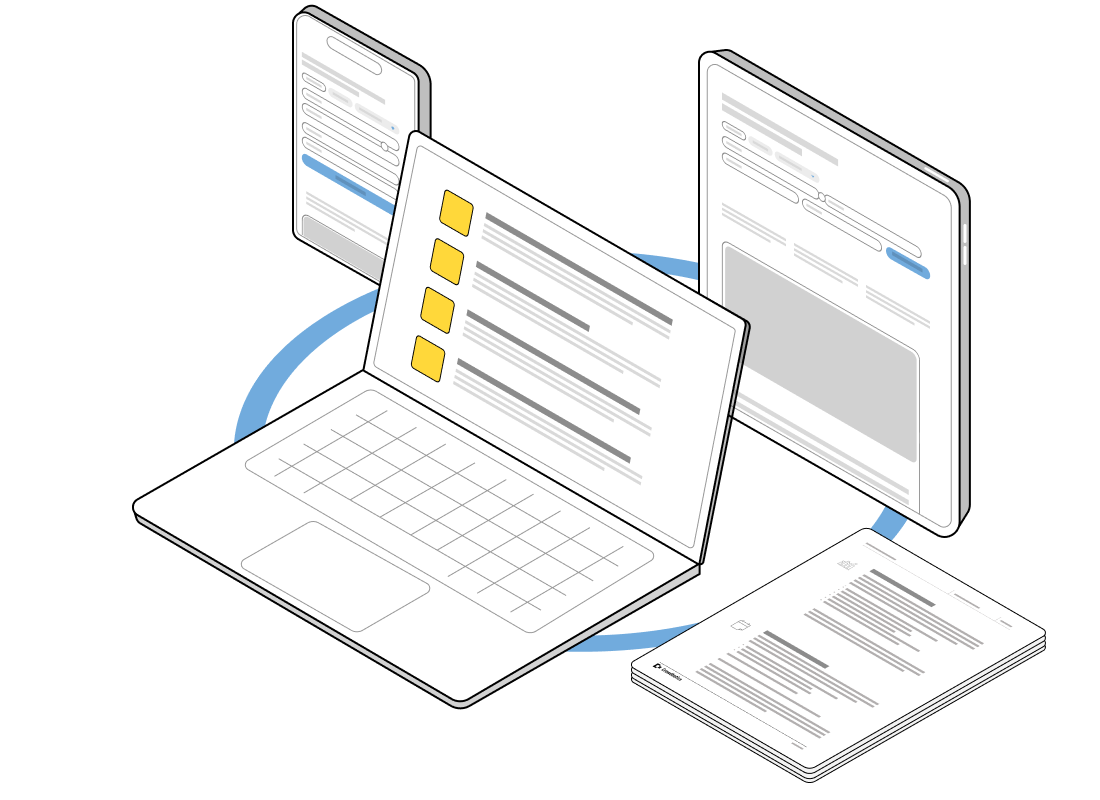What is an educational app?
A educational app is a web, mobile, or desktop application that provides learning content to users. Educational apps typically include an adaptive interface for presenting customized content. The app may also enable users to create user-generated content and place it in the context of an interactive curriculum. Apps with such functionality are sometimes referred to as e-textbooks.
Educational apps are often similar to reference apps. Some of the most well-known educational apps are Khan Academy, Lynda, and the official SAT app.
Examples of educational apps built with Crowdbotics:
- A web and mobile app to replace his company’s existing website. The app will be part educational, with videos connected to products that teach their customers about the medical benefits. They want to have a subscription box set up and are hoping to have an advanced UI.
- A mobile app that helps increase safety and awareness for children and parents for navigating the internet and social media.
- An app that will help people in Norway to get legal advice/council about unemployment/work. The app will be built on multiple APIs (Zendesk, Upodi, Reepay, Loyaltii, Yulsn, etc.) that will handle ticketing, referrals, marketing, and analytics.
What is the typical cost to build an educational app?
An educational app usually costs about $37,500 to build. However, the total cost can be as low as $25,000 or as high as $50,000. An educational app with a low number of features (also known as a minimum viable product, or MVP) will be more affordable than an app that includes all intended functionality.
For example, here are some previous educational app price quotes from Crowdbotics:
How long does it take to build an educational app?
An educational app usually takes 217 hours to build. However, an educational app can be built in as few as 67 hours, or in as many as 467 hours. The exact timeline mostly depends on how complicated your specific app is. As a general rule, it will take longer if you require highly custom designs, niche features, complex logic, or non-standard release platforms.
For example, some previous educational apps build with Crowdbotics received the following hourly estimates:
Not seeing what you’re looking for?
Crowdbotics has quoted and built hundreds of applications for teams of all sizes. Browse our historical estimates by industry and app type to understand possible costs and considerations.
How to successfully grow your educational application
An educational app can grow its user base by providing a high level of value to the users who are most likely to use it. For example, an educational app aimed at children might be able to grow rapidly if it is available on the family devices that they already own. Educational apps can also grow by setting up online groups or communities for students to interact with each other about the app and the course material.
Risks and challenges of building an educational application
An educational or fitness app can face legal and reputational risks related to the accuracy of content, identity verification, and the handling of sensitive personal information. A good example of this is a pregnancy test app that relies on accurate medical information for determining pregnancy but does not have separate mechanisms in place for users to seek additional medical advice if they believe they are pregnant. Because apps like these can face liability for providing incorrect or false information, it is important to verify your content with reliable sources and provide users with a way to seek additional information from a licensed health professional if needed.


